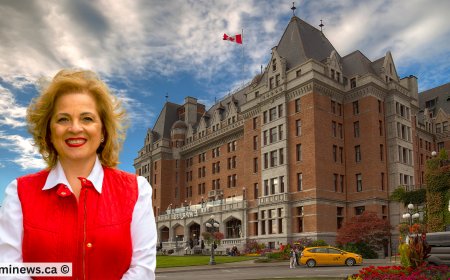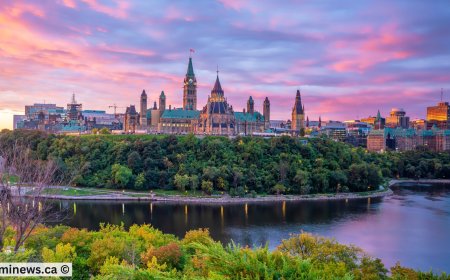University professors and lecturers Canada Immigration Pathways: Understanding Salaries, Work Roles, and Best Provinces
Welcome to the pathway to Canada immigration for skilled professionals and trade workers. This guide is specifically tailored for University professors and lecturers looking to work and settle in Canada, offering a deep dive into the essential aspects of immigration and employment in this field.
Introduction
Canada is known for its excellent education system and high standards of living. For university professors and lecturers, there are ample career and immigration opportunities in the Great White North. In this article, we will explore the profile of University professors and lecturers, including their main job duties, education and licence requirements, skills needed for success, median salary and retirement prospects, as well as possible visa options for those looking to immigrate to Canada for work in this field. Whether you are already a seasoned academic or are considering a career in teaching at the university level, this article will provide valuable insights into the prospects in Canada.
What is the Profile Description of a University professors and lecturers as per the Canadian National Occupation Classification (NOC) Standards?
University professors and lecturers are responsible for instructing undergraduate and graduate students in various courses at universities. They also engage in research activities to contribute to the academic field. Additionally, some professors may serve as department heads within their respective areas of expertise.
What are the Main Job Duties of a University professors and lecturers in Canada?
- Teach a variety of university subjects to undergraduate and graduate students through lectures, laboratory sessions, and discussion groups.
- Prepare and administer examinations, grade assignments and reports, and provide guidance and advice to students on academic matters and career decisions.
- Oversee research programs for graduate students, provide guidance on research projects, and conduct research in their field of specialization, publishing findings in scholarly journals or books.
- Participate in faculty committees related to curriculum planning and degree requirements, as well as perform administrative duties such as representing the university as a speaker or guest lecturer.
- Offer professional consultative services to government, industry, and private individuals, sharing expertise in their specific subject area.
What are the Education, Certifications, and Licensing Requirements to Work as University professors and lecturers in Canada?
University professors must hold a doctoral degree in their area of expertise, while university lecturers must possess a master's degree in their field. Professors teaching in regulated professions like medicine, engineering, psychology, or law may need additional licenses or certifications.
What Essential Skills are Required for University professors and lecturers to succeed in Canada?
To be successful in the field of university professors and lecturers, one must possess a multitude of essential skills. These include the ability to conduct research in their field of specialization, teach university subjects effectively, serve on faculty committees for various administrative tasks, prepare and grade assignments, deliver special lectures and presentations, direct research programs for graduate students, conduct seminars and discussion groups, lead laboratory sessions, provide advice to students on academic matters and career decisions, as well as offer guidance on research projects. Overall, a successful university professor or lecturer must be skilled in not only teaching and research, but also in administrative tasks and student mentorship.
What is the Median Age and Retirement Age for University professors and lecturers in Canada?
The median age of University professors and lecturers is 49 years old, indicating that many individuals in this field have accumulated significant experience and expertise over their careers. Interestingly, the average retirement age for these skilled professionals is 66 years old, suggesting that many choose to continue working well into their later years, likely due to their passion for teaching and commitment to their students and research. This data highlights the dedication and longevity of individuals in academia, as they continue to contribute to the education and development of future generations even into their retirement years.
How many job openings exist for Other University professors and lecturers in Canada, and what's their provincial distribution?
According to the data, there are a total of 119 job openings for University professors and lecturers in Canada. The province with the highest number of job openings is Ontario with 56 positions available, followed by British Columbia with 41 openings. Alberta has 8 job openings, while Québec, Manitoba, and Saskatchewan each have 4, 3, and 3 job openings respectively. Ontario and British Columbia have the maximum number of job openings for University professors and lecturers, while Manitoba and Saskatchewan have the least number of job openings in this field. Overall, there seems to be a good number of job opportunities for those looking to pursue a career as a university professor or lecturer in Canada.
What is the hourly wage or salary of University professors and lecturers in different Provinces of Canada?
In Canada, the wages for University professors and lecturers vary significantly by province. In British Columbia, the wages range from a low of $23.12 to a high of $72.12, with a median wage of $44.87. Alberta has slightly higher wages, with a low of $22.00, a median of $48.08, and a high of $75.00. Saskatchewan offers the highest wages for this profession, with a low of $22.44, a median of $51.82, and a high of $81.73. Manitoba and Quebec have similar wage ranges, with Manitoba offering a low of $21.00, a median of $44.23, and a high of $71.79, while Quebec has a low of $20.51, a median of $48.08, and a high of $75.00. Ontario also offers competitive wages, with a low of $21.98, a median of $52.50, and a high of $82.41. In the Atlantic provinces, wages are slightly lower, with New Brunswick offering a low of $18.75, a median of $43.13, and a high of $67.04, and Nova Scotia offering a low of $17.42, a median of $40.00, and a high of $62.50. Prince Edward Island has a high wage of $81.73, a median of $44.87, and a low of $25.00, while Newfoundland and Labrador offers a high of $69.23, a median of $43.13, and a low of $18.03. Overall, Saskatchewan stands out as the province with the highest wages for University professors and lecturers, while Nova Scotia offers the lowest wages in this profession.
What are the various visa options available for University professors and lecturers migrating to Canada?
University professors and lecturers looking to migrate to Canada have several visa options available to them. They can apply for the Express Entry visa category, which is a streamlined process for skilled workers to obtain permanent residency in Canada. Additionally, they can apply through Provincial Nominee Programs, which allow provinces and territories to nominate individuals who have the skills and experience needed in their region. University professors and lecturers may also be eligible for employer-sponsored work visas, where an employer in Canada sponsors their application for a work permit. It is important to note that there may be other visa options currently open for this profile as well. To learn more about these visa options and discuss your eligibility in detail, book an appointment with our professionals.
Have Questions or Need Assistance?
If you have any queries or require assistance with your immigration plans, we're here to help. Our experienced immigration consultants are ready to provide personalized guidance tailored to your specific needs.
Don't hesitate to reach out and schedule an appointment today. Whether you're seeking clarification on immigration processes, exploring visa options, or need support with documentation, we're dedicated to assisting you every step of the way.
Book an appointment with our team to discuss your immigration goals and receive expert guidance for your journey to Canada.
What's Your Reaction?
 Like
0
Like
0
 Dislike
0
Dislike
0
 Love
0
Love
0
 Funny
0
Funny
0
 Angry
0
Angry
0
 Sad
0
Sad
0
 Wow
0
Wow
0







































































